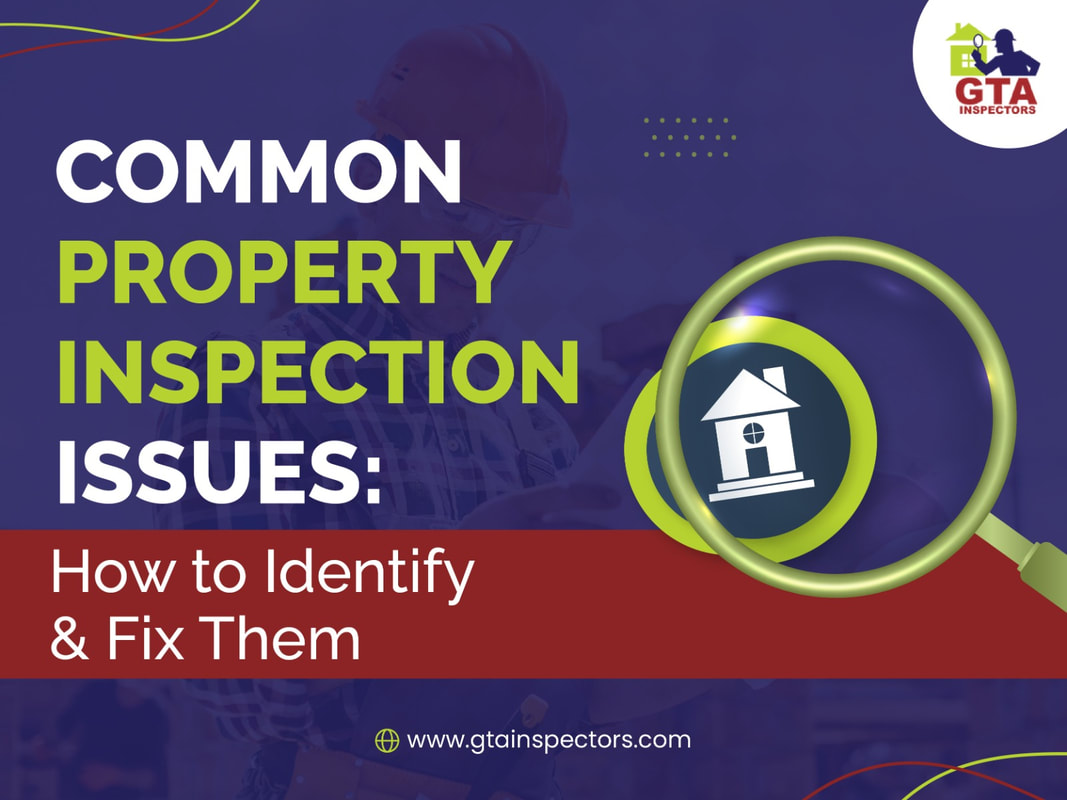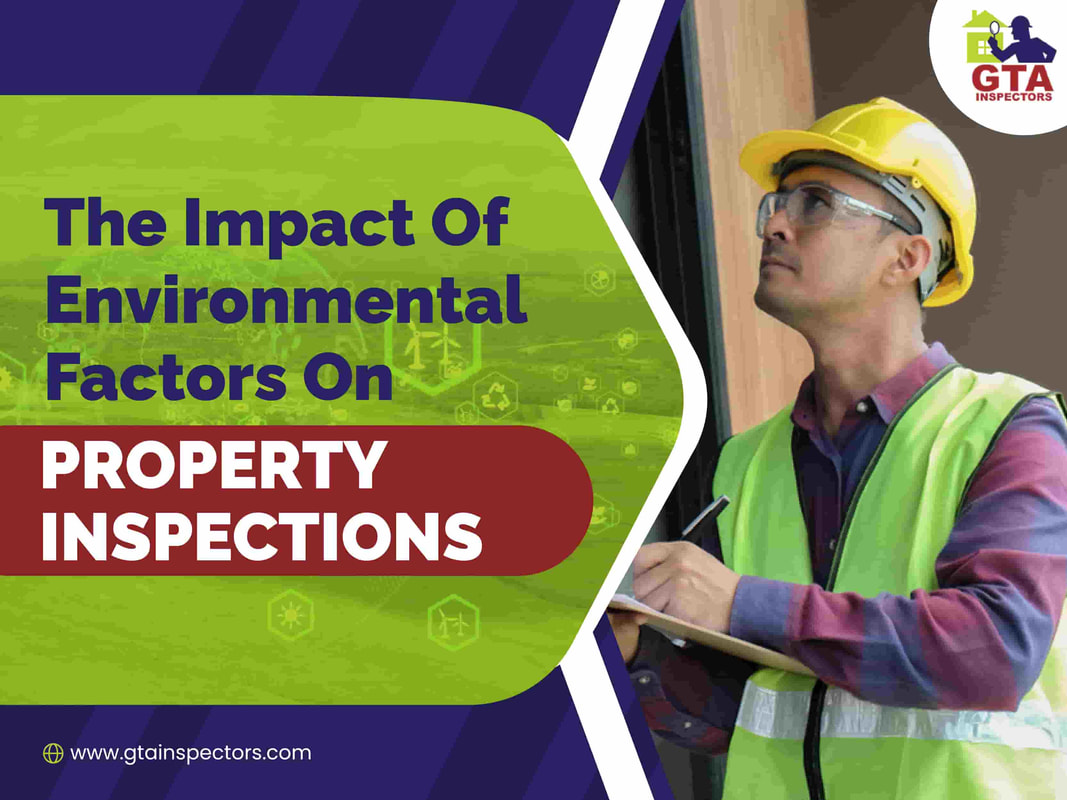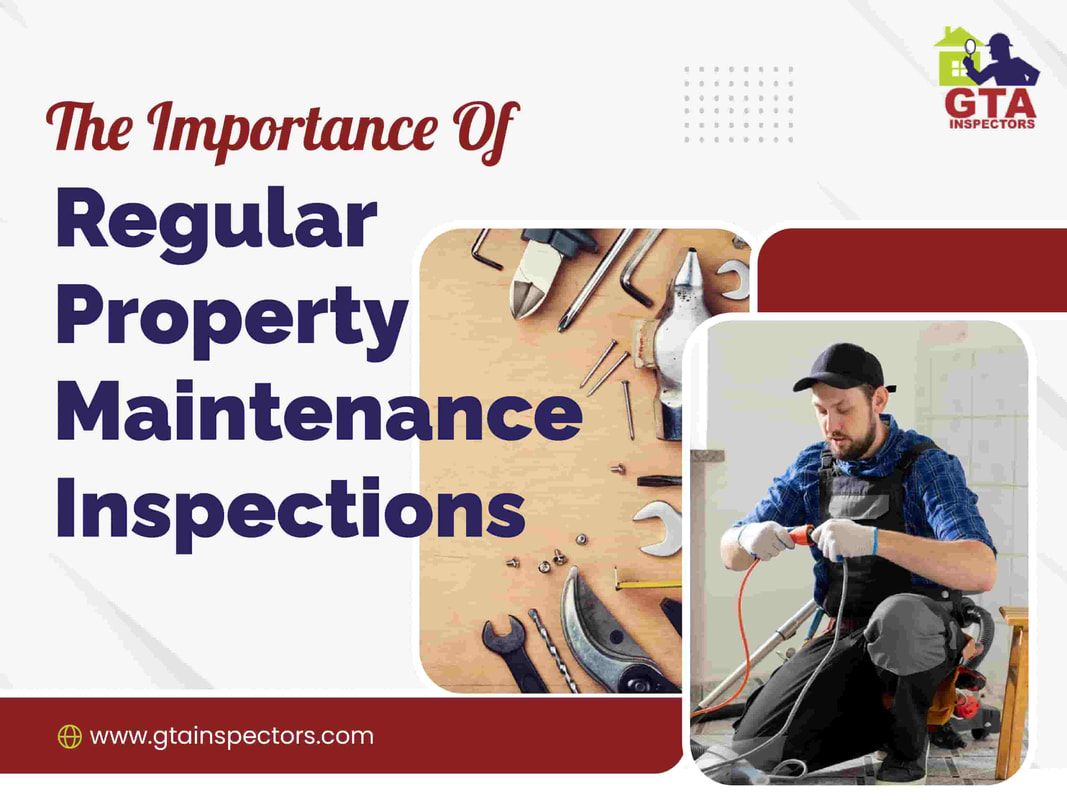|
Property inspection is essential in the real estate industry for guaranteeing a smooth and secure house-buying process. A comprehensive property inspection is crucial whether you invest in a home or commercial property. Due to its capacity to protect buyers' interests and reduce risks, property inspection has grown significantly critical in the United Arab Emirates, where the real estate market is booming. Let's examine the fundamentals of property inspection and discover why every homebuyer has to have one.
When buying or selling a property, understanding its value is crucial. Property inspections can affect the value of a property. In this blog post, we'll delve into the importance of property inspections and how they can affect the value of a property. 1. Evaluating Property Condition Property inspections provide a detailed assessment of a property's condition, highlighting visible and underlying issues. Inspectors examine various aspects, including structural integrity, electrical systems, plumbing, HVAC, roofing, etc. Identifying any existing problems or potential risks can help potential buyers or sellers make informed decisions regarding repairs, negotiations, or pricing. 2. Transparency and Trust Property inspections promote transparency and build trust between buyers and sellers. By conducting reviews and sharing the results with interested parties, sellers demonstrate their commitment to an open and honest transaction. This transparency can attract more buyers and increase their confidence in the property's value, potentially leading to a smoother negotiation process. 3. Negotiation and Pricing Property inspections can directly impact the negotiation and pricing of a property. If an inspection uncovers significant issues or maintenance requirements, buyers may use these findings to negotiate a lower purchase price or request repairs before finalizing the deal. On the other hand, sellers can use a clean inspection report to justify their asking price and discourage potential buyers from negotiating excessively. 4. Risk Mitigation By uncovering potential problems, property inspections help mitigate risks for both buyers and sellers. For buyers, inspections reveal any hidden issues that could lead to costly repairs in the future. Armed with this knowledge, they can decide whether to proceed with the purchase, negotiate repairs, or adjust their offer. For sellers, inspections provide an opportunity to address any concerns proactively, reducing the likelihood of surprises during the negotiation process and potential legal issues after the sale. 5. Appraisal and Financing Property inspection uae can also impact the property's appraisal value and financing options. Appraisers consider the condition and functionality of a property when determining its worth. The appraised value may be lower than expected if significant issues arise during the inspection. This can affect the buyer's ability to secure a mortgage or impact the terms and conditions of the loan. Lenders often require inspections to ensure that the property meets their standards and mitigate the risk associated with the loan. Conclusion Property inspections are a crucial step in the real estate transaction process. They evaluate properties' condition and impact value. Buyers gain insight into potential risks and maintenance requirements, allowing them to make informed decisions and negotiate. Sellers benefit from increased transparency and trust, attracting more buyers and obtaining a higher sale price. Ultimately, property snagging help minimizes risks, foster transparency, and contribute to fair and successful real estate transactions. Whether buying or selling a property, it is essential to recognize the significance of inspections and work with qualified professionals to ensure a comprehensive evaluation. Understanding the impact of assessments on property value allows you to navigate the real estate market more confidently and make informed decisions that align with your goals.
0 Comments
Property inspections are crucial in insurance claims as they help determine a property's condition, value, and insurability. Insurance companies conduct property inspections to assess risks, establish coverage limits, and validate claims.
When it comes to safeguarding our homes and possessions, insurance coverage is essential. However, did you know that property snagging is crucial for determining the coverage you receive? This blog will explore the role of property inspections in insurance claims. Understanding how inspections affect coverage can help you make well-informed decisions and safeguard your most valuable purchase. So, let's delve into the world of property inspections and their impact on insurance claims! What is a Property Inspection? A property inspection involves a comprehensive evaluation of the physical condition of a property. Qualified professionals, such as home inspectors, conduct inspections to identify potential issues and safety concerns and assess the property's overall condition. These inspections typically cover various areas, including the structure, electrical, plumbing, heating and cooling systems, etc. The aim is to provide a detailed report that outlines any existing problems or potential risks, helping homeowners and insurance providers understand the property's condition accurately. The Relationship Between Property Inspections and Insurance Claims Property inspections and insurance claims are closely linked. Insurance providers rely on property inspections to assess the risk associated with a property before offering coverage. The inspection report helps insurers determine the property's insurability and set appropriate premiums. The more information insurers have about a property's condition, the better they can tailor coverage to meet the homeowner's needs. In the event of a claim, property inspections play a significant role. When damage occurs, insurers often send adjusters to assess the extent of the loss. Inspections help determine the cause and origin of the damage, verify the property's condition before the incident, and evaluate the claim's validity. Thorough inspections provide insurers with valuable information to process claims efficiently and accurately, ensuring fair compensation for policyholders. How Property Inspections Affect Your Coverage? Property inspections uae can directly impact your insurance coverage. Here are a few ways inspections can influence your policy: 1. Premium Determination: Insurers may adjust premiums based on the inspection report. The premiums may increase if a property is deemed high-risk due to issues identified during the inspection. On the other hand, a well-maintained property may qualify for lower premiums. 2. Coverage Limitations: Property inspections help insurance providers identify potential risks or hazards. If a property has existing issues that pose a higher risk, insurers may offer coverage with specific limitations or exclusions related to those concerns. 3. Claims Processing: In the event of a claim, the inspection report serves as a crucial reference point for insurers. If the property's condition before the damage is unclear, it may lead to disputes or delays in claim settlement. A thorough inspection report can expedite the claims process and help ensure a fair and accurate settlement. Conclusion: Property inspections play a vital role in insurance claims, influencing your coverage and the claims process. Understanding the significance of property inspections allows you to make more informed decisions and take appropriate steps to protect your home and possessions. If you want to ensure you have accurate and up-to-date information about your property's condition, consider hiring professional snagging company. These experts can provide detailed reports, identifying potential risks and helping you secure the best insurance coverage tailored to your needs. Don't underestimate the value of property inspections; they can safeguard your home and ensure peace of mind. Remember, a thorough inspection today can save you from surprises tomorrow! Owning a property is a significant investment, and it is essential to protect that investment by keeping it well-maintained. Regular inspections are a crucial aspect of property maintenance that often goes overlooked.
Whether you own a residential or commercial building, scheduling property snagging can help you identify potential issues early on and save you both time and money in the long run. This interactive blog will explore the importance of regular property inspections and how they benefit property owners. 1. Identifying Potential Problems: Regular property inspections allow you to identify potential problems before they escalate into significant issues. These inspections cover various areas, including structural elements, electrical systems, plumbing, and HVAC systems. You can spot minor maintenance issues such as leaks, cracks, faulty wiring, or plumbing problems by conducting thorough inspections. Identifying these issues early on enables you to address them promptly, preventing them from turning into costly repairs down the line. 2. Ensuring Safety and Compliance: Property inspections play a crucial role in ensuring the safety and compliance of your property. Safety hazards such as faulty wiring or structural weaknesses can pose significant risks to occupants. Regular inspections help you identify these hazards, allowing you to rectify them promptly and ensure the safety of everyone within the property. Additionally, professional property inspectors help you comply with local building codes and regulations, reducing the risk of penalties or legal complications. 3. Preserving Property Value: Maintaining the value of your property is essential, especially if you plan to sell it in the future. Regular property inspections help you stay on top of maintenance tasks, preserving the property's overall value. By addressing minor issues early on, you prevent them from escalating and causing more extensive damage, which could significantly decrease your property's value. Moreover, a well-maintained property appeals to potential buyers and can increase its market value. 4. Cost Savings in the Long Run: While scheduling regular property inspections may incur some upfront costs, they can result in significant savings in the long run. By identifying maintenance issues early on, you can address them before they become costly repairs. Preventative maintenance is often less expensive compared to major repairs or replacements. Regular inspections help you catch problems when they are still manageable, saving you from unexpected financial burdens and potential disruptions to your property's functionality. Regular inspections are critical to property ownership, enabling you to protect your investment, ensure safety, and save time and money. Inspectors play a vital role in maintaining your property's integrity by identifying potential problems, ensuring compliance, preserving property value, and avoiding costly repairs. Regarding professional property inspections in Dubai, GTA Inspections is a trusted name in the industry. Their experienced and certified inspectors provide comprehensive, detailed inspections using equipment and techniques. Whether you are a homeowner, property investor, or real estate professional, GTA Inspections can help you make informed decisions about your property by providing accurate and unbiased inspection reports. Don't wait until issues become significant problems—schedule property inspections with GTA Inspections, a top-notch snagging company, and experience the peace of mind of knowing your property is in good hands. Invest in your property's long-term health and value by prioritising regular inspections. Remember, prevention is always better than cure regarding property maintenance and regular inspections are the key to proactive maintenance and cost savings. Every year, home inspectors examine hundreds of homes; depending on where they live, they may discover various flaws. However, there are several issues that every inspector finds regularly, regardless of where they live.
Here are some of the most prevalent flaws discovered by home inspectors, so you'll know what to look for when your house is inspected! 1.Rooftop Issues: Home inspectors frequently discover roofing problems during property snagging. Homes, especially ten years or older, are prone to roof damage. Traditional asphalt shingles span 15 to 40 years, depending on location. Roof repairs are more likely to be needed in regions with harsher weather. However, there can be structural damage or quiet places from the damage left unattended, which can be costly to replace. Most roof faults are straightforward fixes, such as replacing missing shingles. 2.Issues With Electrical Wiring: Incorrect connections, stripped wires, weak breakers, and exposed wiring from previous repairs or renovations are frequently discovered by inspectors. The majority of the time, older homes have this problem. Modern homes are wired to comply with all current electrical standards and have a plentiful power supply. 3.Inadequate Attic Insulation and Ventilation: Older houses frequently have ventilation and energy efficiency problems. Attics that are insulated but have yet to be aired are commonly discovered by home inspectors, which causes them to be overly warm in the summer. The absence of ventilation may make it more challenging to maintain a cool interior while increasing the risk of mold growth and other problems. Because cool air can enter a home during the winter and is more difficult to keep inside during the summer, a house with poor insulation and ventilation may be less energy efficient. 4.Inadequate Grading and Drainage Near the Home: Because it doesn't rain frequently and constantly enough to pose a severe threat to residents, drainage problems are often only discovered once an inspector performs an inspection. Poor drainage, however, is a significant problem. Mold can grow, and issues with the foundation of a house that could lead to its collapse can occur if water collects at its base and cannot drain. Professional property inspector frequently discover the slope and drainage around homes to enable water to pool, which may leak into the basement or cause the foundation to degrade and fail. 5.Water Supply Issues: Plumbing issues can be hazardous and prevalent. Leaks, sluggish drains, and poor water pressure are all examples of minor outward flaws. Since plumbing problems are expensive, inspectors carefully examine the system. Unless the inspector discovers significant flaws, minor plumbing problems are typically simple, so there should be little of a problem. Occasionally inspectors uncover systems that can't be repaired. 6.Termites and Other Pests That Destroy Wood: Infestations may develop in situations with persistent dampness and moisture. Anywhere there is wood-to-ground contact and cracks in your foundation are potential entry locations for termites and other wood-destroying insects. Mud tubes, obvious wall mazes, wood shavings, and swelling ceilings and floors are indications of an infestation. Restoration is expensive. Termites cost the US $5 billion in property damage each year. 7.Brick Masonry Flaws: As homes shift, brick cracks are frequent. Due to the threat of damages to a house's structural integrity, inspectors pay close attention to serious masonry issues such as deep, horizontal cracking in retaining walls, slabs, foundations, outdoor steps, and chimneys. Though more frequent than horizontal cracks, vertical cracks are less problematic. Vertical lines of gaps between the bricks in the mortar are acceptable, but if the cracks begin to separate at the mortar or if they penetrate the bricks, there is a severe structural issue. Costs can reach several thousands of dollars if significant structural repairs are required. Final Notes on Required Fixes and Repairs A home inspection is one of the biggest obstacles in a real estate deal. A seller and a buyer must pay attention to the wise counsel of their real estate agent. A listing agent and a buyer's agent should advise the seller and the buyer, respectively. Some repairs should be treated seriously, while others are merely cosmetic and can be ignored. There is frequently a tiny line between what has to be addressed and what doesn't. Before a home is formally purchased, it is advised to be examined by qualified snagging companies like GTA Inspectors. This will assure you that your house is safe for you and your family and make you feel more secure there. Real estate buying can be overwhelming for a new buyer; conducting a pre-purchase property inspection, whether a house, apartment, or commercial space, is essential. A comprehensive assessment can save you from potential headaches and costly repairs. In this guide, we'll walk you through what to expect during a property inspection and why hiring professionals like one of the leading snagging companies in Dubai GTA Inspections is crucial.
What is a Pre-Purchase Property Inspection? A pre-purchase property inspection is a comprehensive assessment of the condition of a property before buying. It involves a certified inspector examining various aspects of the property, including the structure, electrical systems, plumbing, HVAC, roof, foundation, and more. The aim is to determine any existing or potential issues affecting the property's value, safety, or livability. What to Expect During a Pre-Purchase Property Inspection? When you hire a professional property inspector, they will thoroughly evaluate the property, inside and out. Here's what you can expect during the inspection process: 1. Exterior Inspection: The inspector will examine the property's exterior, including the roof, gutters, walls, foundation, windows, doors, and landscaping. They will look for signs of damage, water intrusion, cracks, or any other issues that may require attention. 2. Interior Inspection: The inspector will evaluate the interior components, such as walls, ceilings, floors, doors, windows, and stairs. They will check for signs of leaks, structural damage, mold, pests, faulty wiring, plumbing issues, and other potential problems. 3. Electrical Systems: They will examine the electrical systems, including the main panel, wiring, outlets, switches, and fixtures. They will ensure everything is up to code and safe to use. 4. Plumbing Systems: The inspector will inspect the systems, including pipes, fixtures, faucets, drains, and water heaters. They will look for leaks, water pressure issues, drainage problems, and potential plumbing hazards. 5. HVAC Systems: The inspector will evaluate the heating, ventilation, and air conditioning systems. They will check if they are in good working condition and if there are any maintenance or repair needs. 6. Other Areas: Depending on the property, the inspector may also examine additional areas such as the attic, crawl spaces, basement, or garage. These areas can reveal hidden issues like insulation problems, pest infestations, or structural concerns. Why Are Pre-Purchase Property Inspections Essential? 1. Uncover Hidden Issues: A thorough property inspection can reveal hidden problems that may not be immediately noticeable. Identifying these issues before purchasing the property allows you to negotiate repairs or reconsider your investment. 2. Save Money: By identifying potential issues early on, you can avoid costly repairs in the future. It allows you to budget and plan for necessary repairs or renovations. 3. Negotiating Device: If the inspection uncovers substantial issues, you can use the findings as a bargaining tool to negotiate a lower purchase price or request repairs from the seller. 4. Peace of Mind: A professional inspection provides peace of mind, knowing that you are making a well-informed decision based on the property's actual condition. Why Choose GTA Inspections? Regarding pre-purchase property inspections Dubai, GTA Inspections is a trusted name. They have a team of experienced and certified inspectors who use advanced tools and techniques to provide thorough assessments. Here's why you should consider GTA Inspections: 1. Expertise: GTA Inspections has extensive knowledge and expertise in evaluating all types of properties, ensuring a comprehensive inspection. 2. Attention to Detail: Their inspectors pay attention to even the most minor details, leaving no stone unturned during the assessment. 3. Timely Reports: GTA Inspections provides detailed inspection reports promptly, allowing you to make informed decisions without delay. 4. Transparent Communication: They maintain transparent communication throughout the process, explaining their findings and answering any questions you may have. Finally, a pre-purchase property inspection is crucial in home buying. By hiring professionals like GTA Inspections, you can expect a thorough assessment that will uncover any potential issues, save you money, and provide peace of mind. Take advantage of this essential step when investing in a property. To learn more about the best snagging company GTA Inspections, and our services, visit our website at www.gtainspectors.com You have the right to undertake various inspections on the possible house you're buying when buying a home. The most frequent contract stipulation from house buyers is a home inspection. A property snagging is nearly always strongly advised, regardless of whether you've bought five homes or are about to make your first purchase.
Why is the house inspection contingency among the most popular and highly advised? Reasons why a home inspection is strongly recommended and why the home inspection contingency is one of the most frequently found contingencies in purchase and sale contracts in real estate. So what are the grounds for getting a home inspection before buying one? Before that, let's look at the stats of home inspections that you must know. STATS OF HOME INSPECTION
Avoid taking any risks! You could believe you're saving money by missing a house inspection, but you'll likely make many repairs, in the long run, to make up for it. You can prevent tiny issues from growing into major ones by having regular home inspections. Here are some main justifications for getting a house inspection before buying one. 1.Safety threats: Numerous safety risks can occur in a house that has been neglected. A house inspection might find safety problems, including radon, mold, and carbon monoxide. Buyers should ensure their home purchase contract contains a clause allowing them to cancel their offer if safety issues are discovered. 2.Future Cost Predictions: The installation age of essential appliances like water heaters and vital home systems like plumbing, heating, and cooling can be estimated by a home inspector. They might determine the current condition of the building and divulge the age of the house's finishing. Knowing when to replace them might help you make critical financial decisions and determine the type of house insurance or warranties you should research. 3.Identify Illegal Installations or Additions: It impacts the home's insurance, property taxes, and total value if the garage or basement has been renovated in a way that is either against the law or was finished without the necessary permissions. Additionally, after the sale of the house is finalised, the cost of removing the unauthorised improvements falls on the buyer. 4.Tool for Negotiation: You can request repairs, a price reduction, or a credit from the seller using the home inspection for buyers report. Determine what requests can or should be made to negotiate a higher price by working with your realtor! 5.Determine "Deal-Breakers": Home inspections can help buyers decide how much money or effort they are prepared and willing to put into bringing the house up to a level they find personally acceptable. You must prepare to terminate your hunt for a property to buy if you're eager to fix problems like broken gutters, cracked walls, or ceilings. Now is not the time to compromise! 6.Deciding on whether to undertake repairs: After receiving the inspector's report, you have two options: make the repairs or reduce the asking price. Proceeding with the repairs when they are minor and reasonably priced is advisable. An issue, such as a leaky roof or a fire hazard, should also be fixed because it will reduce the problems that must be disclosed to the buyer. 7.Finding hidden issues: The prospective buyer would likely engage a qualified home inspector to examine your house. You can hire a house inspector to perform a pre-inspection if you're a seller. This will guarantee no unpleasant surprises you weren't prepared for during the homebuyer's inspection. 8.You can close more quickly: If you make repairs beforehand and are aware of issues before the buyer's inspector is, your home will sell more quickly. Pre-inspections enable sellers to get a head start on repairs, saving time for everyone. 9.Guard against legal action: The Illinois legislature added Seller disclosure requirements in 1994. You must disclose a home's physical condition when selling a home in Illinois. Code infractions, environmental problems, and other things are included. Several disclosures must be made before the selling contract is signed. If not, the buyer may have a claim against the seller for issues that were not disclosed. 10.You might charge more to list your house: Repairing could raise the value of your home. Ensuring your house is in excellent condition will give you more negotiating power when there are new repairs. Are you looking for a reliable house inspector in your area? The best resource for you is GTA! We are a skilled and best snagging company in UAE, giving you reliable, thorough house inspections. To protect your investment, whether buying or selling a home, hire professionals to check it. When purchasing, use the inspection process as a negotiating tactic. During the inspection process, you might learn about issues before they become problematic if you sell. A snagging inspection of a house you want to buy aims to assess the home's structural soundness and safety and ensure you invest wisely in a hazard-free, code-compliant home.
The buyer's only opportunity to evaluate and assess the condition of the property is during a home inspection. If the buyer has to inspect many of the home's physical features, this activity could get tiresome. This is the time when a house inspection checklist is helpful. Home inspection is one of many milestones of the house-buying journey, but few have as much influence. You might believe that you know everything there is to know about a property by the time you submit an offer. However, by providing them insight into potential issues before closing on the home, a professional home inspection can give home purchasers the much-needed assurance they require. Here are the top 5 things you need to know before purchasing a home: 1.Include a home inspection condition in your contract as your first step. A house inspection contingency, often known as a "due diligence" contingency, should be present in your sales contract as a first step. This gives you time to hire a competent inspector to review the property. 2.Understand how your home inspection contingency operates in step two. Depending on your unique agreement, the inspection period is often between one and two weeks from when your sales contract is signed. Your time during the contingency period should allow you to:
3.Engage a dependable home GTA inspector. It is crucial to hire a thorough, qualified property snagging. They must be current on all training and educational courses and certifications. They should have knowledge of the area you're buying in and a comprehensive insurance policy. They should be informed of any issues with the soil, pests, or even home builders. 4. Verify That Your Inspector Follows This Checklist for Home Inspections. Inspectors are expected to follow a fundamental, standardised house inspection checklist, albeit every inspector conducts things differently. Some inspectors might go further than this or present their findings differently. 5.Read your home inspection report in step five. After inspecting your property, the home inspector will compile a thorough report of their findings. Each room or part of the house should have its section in the report, along with a comment about anything that needs fixing, is broken, or isn't working. The terminology they use to describe any problems they find is often as follows:
Make sure the repairs are done to your standards if you decide to have the seller make them to the house. Once the repairs are done, ask your realtor to arrange a walk-through so you may inspect the property and ensure that the closing goes as planned. You might request that your inspector returns for a "reinspection" if the seller made significant repairs to the foundation, roof, or other essential components of the house. These enable the original inspector to return and ensure problems have been fixed. They have a cost but can stop safety problems and future repairs. Finally, you can proceed with closure after you've renegotiated and ensured that the necessary repairs were completed (and made correctly). Ultimately, you should sign your paperwork and receive your keys as long as everything with your lender goes according to plan. In conclusion, a detailed list of the necessary items should be included on a property inspection uae checklist well before the inspection. By doing this, the buyer can avoid mistakes that could be a loss of money after buying the house. In an era of unprecedented technological advancements, it is no surprise that the property inspection industry is undergoing a transformative shift. Property inspections were traditionally laborious and time-consuming, involving manual assessments and physical inspections. However, with the advent of cutting-edge technologies, this industry is experiencing a profound metamorphosis.
Technology has revolutionized property inspections, making them more efficient, accurate, and cost-effective. Various innovative tools and techniques have emerged, from drones capturing high-resolution images to artificial intelligence analyzing data, propelling the property inspection industry into the digital age. This blog aims to explore the various ways in which technology is transforming the Property Inspection Dubai landscape. We will dive into the advantages that these technological advancements offer, not only to property inspectors but also to homeowners, buyers, and real estate professionals. The industry is poised to unlock new possibilities by embracing these advancements, enhancing property inspections' efficiency, safety, and reliability. Throughout this series, we will uncover the key technologies that are spearheading this revolution, including virtual reality (VR), augmented reality (AR), the Internet of Things (IoT), and machine learning. We will examine their applications and discuss how they reshape every step of the property inspection process, from initial assessments to final reports. Brace yourself for an exciting journey into the world of property inspection in the digital age! 1. Enhanced Efficiency and Accuracy: One of the most significant ways technology reshapes the property inspection industry is by enhancing efficiency and accuracy—traditional inspections require inspectors to spend hours manually documenting findings and assessing properties. Today, digital tools and mobile applications have streamlined the process, allowing inspectors to conduct checks on-site and input data directly into electronic systems. Drones with high-resolution cameras have revolutionized property inspections, enabling inspectors to capture aerial images and videos for a comprehensive assessment. This technology provides a more accurate view of the property's condition, especially for large or hard-to-reach areas. Moreover, advanced property snagging software utilizes artificial intelligence (AI) algorithms to automatically analyze data and identify potential issues. These systems can detect structural defects, water leaks, electrical faults, and other problems, minimizing the chances of oversight or human error. Inspectors can also use thermal imaging technology to identify heat or energy leaks that may be invisible to the naked eye, further improving accuracy. 2. Cost-Effectiveness and Time Savings Technology has significantly reduced the time and cost associated with property inspections. With automated processes, inspectors can complete inspections in a fraction of the time required for traditional methods. This increased efficiency translates into substantial cost savings for property owners and inspection companies. Digital platforms and cloud-based storage systems have replaced stacks of paperwork and physical files. Inspectors can now create detailed reports with images and notes and store them securely in a centralized database accessible to all stakeholders. This eliminates the need for printing, storage space, and manual record-keeping, leading to a greener and more streamlined process. Additionally, technology has enabled remote property inspections through virtual tours and video conferencing. Property owners and inspectors can interact in real time, reducing the need for travel and allowing inspections to be conducted from anywhere in the world. This flexibility saves time and costs associated with logistics, making the inspection process more convenient and accessible. 3. Improved Customer Experience and Transparency The integration of technology in property inspections has significantly enhanced the customer experience. Property owners can better understand their property's condition through interactive reports with visual representations and detailed explanations. This transparency empowers property owners to make informed decisions regarding repairs, renovations, or property transactions. Moreover, technology allows for accessible communication between inspectors and property owners. Automated notifications and reminders ensure property owners stay informed throughout the inspection process, fostering trust and transparency. Property inspection companies are also leveraging technology to provide better customer service. Online scheduling systems, customer portals, and mobile applications allow clients to book inspections, access reports, and communicate with inspectors conveniently. These tools streamline the entire process, saving time and effort for both parties. Conclusion: Technology has transformed the property inspection industry, revolutionizing how properties are assessed and evaluated. Integrating drones, AI algorithms, digital platforms, and virtual tools has enhanced efficiency, accuracy, cost-effectiveness, and customer experience. Inspections are faster, more accurate, and transparent, empowering property owners and inspection professionals. As technology evolves, snagging companies expect further advancements to improve the property inspection, ensuring that properties are thoroughly evaluated and maintained with utmost precision. Property inspections play a crucial role in determining the condition and value of a property. Various environmental factors come into play when conducting these inspections, significantly influencing the assessment process. Environmental factors can positively and negatively impact property inspection uae, affecting the outcome and the overall evaluation. This blog will explore critical environmental factors that can influence property inspections.
1. Weather Conditions: Weather conditions are among the most significant environmental factors affecting property inspections. Uttermost weather events, such as heavy rain, storms, or snowfall, can hinder inspections by making it difficult to access certain areas of the property. For example, a roof inspection may not be possible during heavy rainfall or strong winds, limiting the inspector's ability to assess potential damages accurately. 2. Natural Disasters: Natural disasters, such as hurricanes, earthquakes, or floods, can have a severe impact on property inspections. These events can cause extensive damage to buildings and infrastructure, making it necessary to conduct thorough inspections to assess the extent of the destruction. Inspectors must consider the effects of natural disasters and evaluate the property's structural integrity accordingly. 3. Environmental Hazards: Environmental hazards, such as asbestos, mold, or lead-based paint, can pose significant health risks and affect property inspections. Inspectors must be aware of these hazards and take necessary precautions when inspecting properties. Failure to identify and address environmental hazards can have legal and financial implications for property owners and potential buyers. 4. Geographic Location: The geographic location of a property can also impact inspections. Properties located in coastal areas may be susceptible to saltwater corrosion, while those in earthquake-prone regions may require specialized inspections for structural stability. Different regions may have specific environmental factors to consider during inspections to ensure accurate assessments. 5. Surrounding Environment: The surrounding environment of a property can influence its value and condition. For instance, proximity to industrial sites or airports may result in noise pollution, which could affect the property's overall appeal. Additionally, nearby natural features like lakes, rivers, or forests may require additional inspections to evaluate potential risks such as flooding or fire hazards. 6. Climate Change: Climate change is an emerging environmental factor increasingly influencing property inspections. Increasing sea levels, increased frequency of extreme weather events, and changing precipitation patterns can all impact the condition and value of properties. Inspectors must be cognizant of climate change effects and adapt their inspections accordingly, considering long-term risks and potential damages. 7. Environmental Regulations: Environmental regulations and policies can significantly impact property inspections. Inspectors must stay updated on local and national regulations related to environmental factors, such as energy efficiency standards or waste disposal requirements. Compliance with these regulations is crucial for property owners and can impact the overall evaluation of a property. In conclusion, environmental factors play a vital role in property inspections. Weather conditions, natural disasters, environmental hazards, geographic location, the surrounding environment, climate change, and environmental regulations influence the inspection process and outcomes. Property inspectors must be knowledgeable, adaptable, and aware of these factors to provide accurate assessments. Understanding the impact of environmental factors on property inspections is essential for property owners, buyers, and inspectors to make informed decisions and ensure the safety and value of properties. Don't leave your real estate transaction to chance. Choose GTA Inspector, the best certified snagging companies Dubai that goes above and beyond to protect your interests. Connect with us now to schedule an inspection and experience the difference firsthand. Trust us to be your partners in ensuring a safe and sound investment. You should check on your assets periodically to maintain them secure and in good working order. The best way to keep the property's appearance and spot any flaws or areas that might need repair is to conduct a property snagging.
A property manager should routinely verify the following things: 1.Land Area: Examine the lawn and landscaping to ensure they are adequately maintained. This is crucial since neglecting to maintain a rental property's landscaping may subject the owner to severe fines. 2.Exterior Area: Examine the exterior of the rental property to look for signs of deterioration or damage. Chipped, damaged, or peeling paint, loose shutters, roof debris, electrical, cable, phone, or satellite dish lines, indications of water damage, broken windows, and more need special attention. 3.Interior Area: Examine the interior of the building. The ceilings and flooring of every room should be examined for water damage or house mold inspection. All window fittings, entranceways, sinks, and toilets should be checked for leaks. Investments in real estate rank among the most important ones; maintaining it is essential to preserve its value. Property inspection are crucial and one of the most critical factors for landlords. Many property owners wait until renters contact them before scheduling inspections. To ensure the property is kept in top shape, it is crucial to perform routine checks. The state of a landlord's property or community is significantly influenced by their degree of contentment. Two Reasons Why it's Crucial to Perform Routine Property Inspections 1.To convey to your tenants that you are concerned for them and to make sure they are abiding by the regulations: Checking up on the unit every three to six months after you and your tenant have signed a lease might show your tenant that you are concerned about how they are enjoying living on your property. This allows you to check if the tenants follow the lease terms. Before renting out, inspecting and documenting it with photos and paperwork would be helpful. 2. Keep up with maintenance issues: Tenants are happy with maintenance issues if they're not a hassle. Occasionally, problems can harm the equipment if a repair takes less time. By identifying difficulties and suggesting preventive steps, frequent inspections can help mitigate such issues. The cost of repairs would be kept to a minimum. Requirements for Effective Inspections
How Frequently Should Routine Property Inspections Be Performed? In addition to being vigilant about property inspections, GTA Inspectors, the best snagging company, also protect the privacy of your tenants. Information you need to know regarding inspections and repairs:
Through routine checks, you can keep your health. Regular inspections aid property maintenance. They substantially impact both the risk of legal issues and penalties and the quality of life for renters. Early problem detection can help save money and prevent more severe problems. The long-term profitability of your investment depends on your ability to maintain compliance with the constantly changing laws and regulations, preserve the property's worth, and keep your tenants happy. |
AuthorWrite something about yourself. No need to be fancy, just an overview. Archives
July 2024
Categories
All
|











 RSS Feed
RSS Feed
